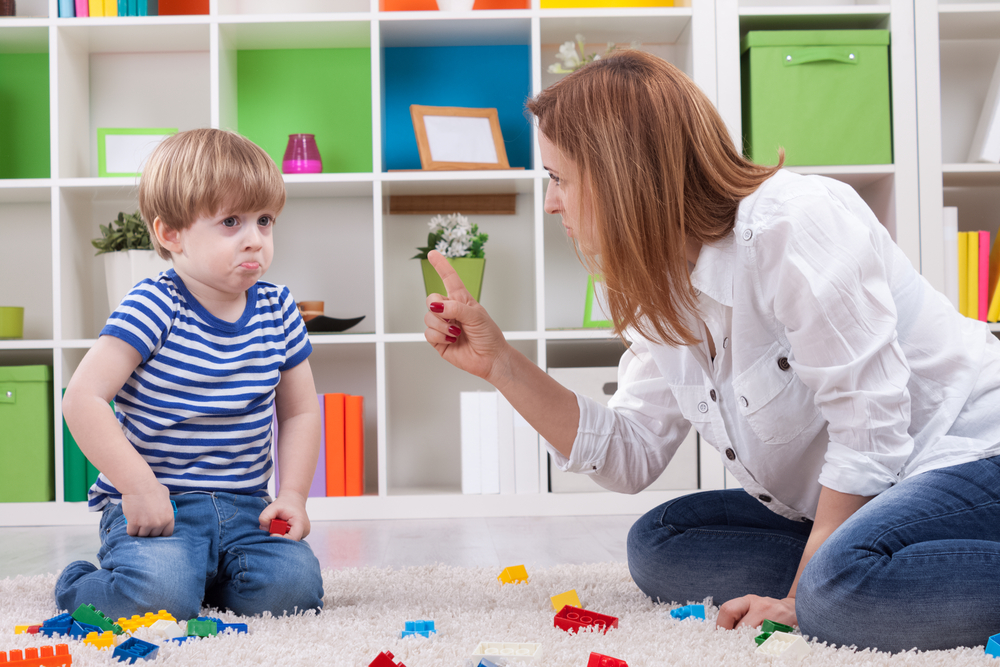Teenage-parents blackmailing! How to find common grounds with the “not so little” child?

One of our readers has shared their story:
“My daughter is almost 16 years old, she constantly uses the blackmail technique on me. For example, she can say “can I go on a sleepover out of town on my 16th birthday?”. The reply to this is “No”. The daughter then says “Then I do not want to see any relatives on my birthday, and I will not do this or that”.
What to do? How to find a common language with a teenager and stop children’s blackmail?”
Tips from experts
We asked two experts to comment on the situation and make recommendations to parents facing teenage or child blackmail.
How to interact with the teenager – tips from a psychologist

Prostock-studio/Shutterstock.com
Maureen Johnson, a psychologist with 20 years of experience in the field of child psychology, believes that it is important to discuss the situation with the child “on an equal footing”, however, the final decision is to be made based on the life experience of the parents:
“Blackmail is a common tool that teenagers use when communicating with their parents. The goal of its usage is to show and prove to parents that they have grown up and can now talk with them on equal grounds: “You have the right to demand something from me, well, I also have such a right now!”
On the one hand, this is a normal manifestation of the process of growing up. Most likely, this behavior indicates that the child is really trying themselves in the role of an adult. However, on the other hand, it is not easy for parents to spot such changes and manifestations in their child.
Someone is trying to “stir away” the parent from their authoritative role – how so?! This can trigger anxiety in the parent, as well as fear, the inability to control someone who has recently been obedient and compliant. The parent becomes insecure and uncertain. And the teenager immediately sees it right through.
Therefore, in a relationship with a teenager, it is highly important to do the following:
- Listen carefully to the child, discuss the situation together.
- HOWEVER! The decision should be made based on the adequate assessment of the situation as a parent.
If this refers to the behavior that is really dangerous and inappropriate for the child’s age, the task of the parent is to prohibit and prevent this. Sometimes it is enough to just say, “This can be very dangerous. I worry about you”.
Do not forget that a teenager cannot be stopped from everything all the time, otherwise, there will be no trust in you as a parent. The temptation to break these rules will inevitably emerge.
Allow the teenager to do what you think is necessary and important to them. Try to talk to them as if you are equal, but do not forget that you are in a parent-child relationship. Even if the child is already a teenager, they still need your guidance and even, no matter how paradoxical it may sound, they are in some way waiting for your limitations”.
Make a decision for yourself: the teacher’s opinion

Prostock-studio/Shutterstock.com
Teacher and mother Belinda Schwartz is sure that the problem of blackmail initially stems from parental mistakes:
“Blackmailing a teenager is always a parental problem. From my point of view, the first thing to think about is when did it start?
If this behavior was not observed before the age of 16, then the problem should be solved with deliberate conversations. Why is the girl acting like this? If the child withdraws from the dialogue, look at your own actions in relation to her environment. Most often, this behavior occurs among adolescents, when parents restrict their freedom very severely. Here is what I mean by this:
- constant control over the child’s friends;
- criticism of the teenager’s environment;
- rejection of their hobbies;
- the constant imposition of your vision, opinion, and desires.
At this age, the child needs some nominal independence. The task of parents is to love, protect, and guide them, but definitely not to impose their categorical opinion on their children.
In the situation described above, the following question arises for the parents: why are you worried about their overnight stay on the outskirts of town? You don’t know who will be there and what they will be doing? This is your oversight. My opinion is that it is necessary to constantly – openly and with real interest – to be curious about the friends and the interests of a teenager.
The second option is to offer to go with them, however, without getting in the way. Here is a story from personal experience. My daughter studied at a photography school. They had night shots of the star falls. There are absolutely different ages in the group going on this trip – I was really worried, so I offered to go with them. Time flew by unnoticed: the teenagers were keen on their activity, the adults were relaxing nearby… We often think about that lovely trip. The photos turned out great, too!

Prostock-studio/Shutterstock.com
Tell your child that you are genuinely worried about their life and safety. If you are confident in your child and in their friend group, you should not be afraid: a teenager can stand up for themselves, and they can surely reach out to you on the phone should this be necessary. Trusting your child and accepting that they are growing up is very important during this time.
The parental control app can help you to stop worrying. It will not only show where the child is and what they are doing, but it will also allow you to instantly notify the parent of any danger, thanks to the SOS emergency button. However, it is very important to discuss the presence of such an app with the child and mark the boundaries of what is permitted from both sides. The app can be downloaded from AppStore and GooglePlay.
One last tip: at this stage, it is very important to be with your daughter along the way, and do what she likes doing. You don’t have to actually be physically doing it, but you must learn about events and situations in their life and to support them”.
Проверьте электронный ящик


















